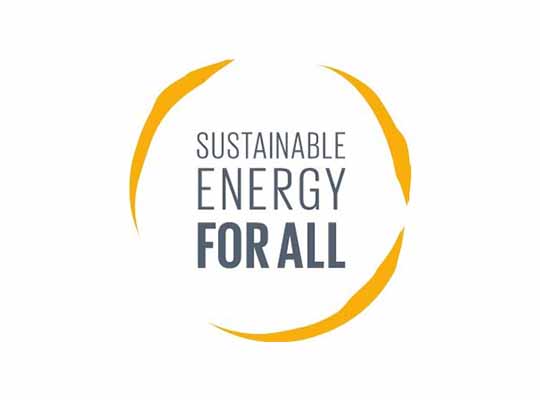VIENNA – A carbon-free electricity sector is the foundation for reaching a net-zero global economy. Electricity generates 25% of the world’s greenhouse gas emissions, and is key to decarbonizing other sectors of the economy, including buildings, transport, and industry. To achieve net-zero emissions across the global economy by 2050, electricity must become the core of the energy system and be decarbonized even faster, while expanding to meet the increasing demands of millions who lack adequate access to electricity today.
Google is building on its three-decades long commitment to sustainability for people and planet by aiming to operate on carbon-free energy – every hour of every day, at all of its data centers and office campuses around the world, by 2030. This more ambitious commitment will be captured in an Energy Compact, an innovation introduced by SEforALL and backed by UN-Energy as a key outcome of the upcoming UN High-level Dialogue on Energy in September, The Energy Compacts are public and trackable commitments, with specific actions, made by governments, companies and others to achieve energy transition goals by 2030 – including universal access to affordable and clean energy.
Google and SEforALL will leverage Google’s experience to build a global Compact for 24/7 Carbon-free Energy (CFE). Google and SEforAll are calling on companies, governments and other stakeholders who commit to the principles of 24/7 CFE to join the Compact and work together to enact the policies critical to fully decarbonize the world’s electricity systems.
“We are eager to work with Sustainable Energy for All and the world’s governments and corporations to fully decarbonize grids and support a carbon-free economy. With this global Compact, we have a unique opportunity to transform energy policies, technologies, and procurement practices- but only if we work together.” said Kate Brandt, Chief Sustainability Officer of Google.
“This partnership with Google sends a powerful signal that none of us alone can achieve the scale necessary to tackle the double crisis of climate and energy poverty. The only hope we have to heal our planet and to provide opportunities for billions is together through partnerships like this that can pave the way for others to follow.” said Damilola Ogunbiyi, CEO and Special Representative to the UN Secretary-General for Sustainable Energy for All.
Google and SEforALL recognize the need for urgent action now. This is punctuated by the troubling new IPCC report on climate change showing that we must dramatically transform our energy systems to operate on carbon-free energy to avoid warming the planet beyond the global target of 1.5 degrees Celsius. Getting there will require a rapid acceleration in the pace of clean energy deployment, the development of advanced carbon-free energy technologies, and significant policy changes. All stakeholders – from energy consumers to energy providers to policymakers and civil society – must work to advance the decarbonization of the world’s electricity systems in a just and fair way. This is why a global coalition is needed now, more than ever.
To drive action on this urgent issue, Google and SEforALL are co-hosting a workshop on 24/7 Carbon-Free Energy as the Path to Net-Zero on Tuesday 24 August at 11:00 EST, to demonstrate the concept and how energy consumers everywhere can support electricity decarbonization, which means that every kilowatt-hour of electricity demand is served by carbon-free electricity sources, every hour of every day, everywhere. The workshop will also provide an overview of Energy Compacts and show how participants can themselves create and commit to one.













